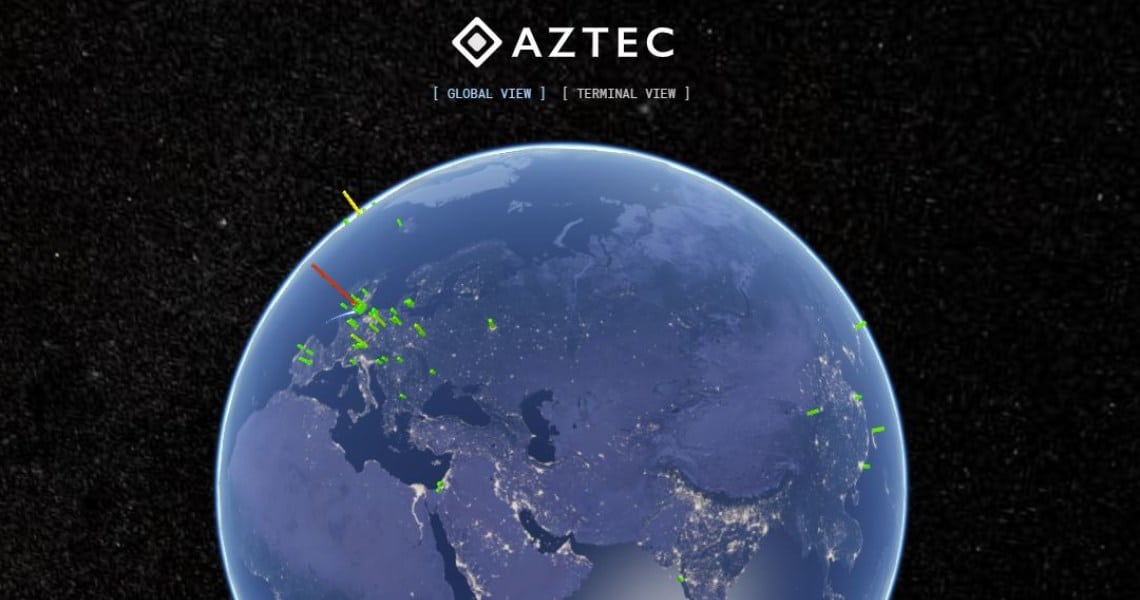The Aztec privacy network is ready to be used on Ethereum, which means that DeFi dApps will finally allow zkDAi to see the light of day.
Over the next few weeks, the Aztec team will create new tokens with the suffix “zk” to indicate the particular privacy function.
Ethereum in the financial world
Normally on Ethereum, transactions are validated by linking the sender address, the recipient address and the input and output values on the public blockchain.
Through zk-SNARKs, the conditions for a valid transaction are met without revealing any crucial information about the addresses or values involved.
One of the most recognized characteristics of a blockchain such as Ethereum is contained in the phrase “programmable money“, a smart contract that controls the movement of capital within a financial application.
For example, a bond transfer will only be processed if the total position of the buyer is below a regulatory limit of 4%.
If this can be achieved, large parts of the contemporary financial system can be replicated in public blockchains, eliminating intermediaries.
Using the Ethereum blockchain to create programmable money today is simple. However, there is one problem: privacy.
The inputs and outputs of any blockchain transaction are in fact publicly transmitted within the transaction payload.
In the example of the bond transfer, the traded data and the current position of an operator should be transmitted so that a smart contract is compliant with the 4% regulatory limit to validate the agreement.
This is an essential step for real-world financial applications where transaction privacy is a prerequisite.
The Aztec solution
The major efforts of the Aztec team will be completed within a few months when the removal of network restrictions will allow anyone to apply the zkSnarks privacy model to any token.
The zkSnarks have become a widely used model on Ethereum. The developments do not stop and many teams all over the world are fighting to bring better solutions to the integration of this technology.
Aztec is an interesting project that through its paper has promised, and now implemented, a more efficient and functional universal zkSnarks model.
With the famous “ignition Ceremony” at the end of 2019 Aztec has officially become a reliable and active privacy network on Ethereum.
Similar to Zcash, the first team to implement this tech in the cryptocurrency world, the public ceremony served to create enough randomness to start the network in a transparent and risk-free way. A necessary step to protect the incorruptibility of the network forever.
The technology
The centrepiece that allows Aztec to offer these technologies is formed by two fundamental components:
- Aztec Crypto Engine: validation contract on the Ethereum mainnet, it verifies the correctness of each private transaction.
- Privacy SDK: reduction of the complexity of Aztech’s cryptography, so that developers can easily integrate code into their dApps.
Once ACE is active, the system allows users to make private transactions on Ethereum in two distinct ways:
- Through the direct creation of “Aztec” tokens that can be used anonymously;
- Wrapping, which involves the use of ACE for pegging tokens with a maximum privacy function.
The objectives of the team
After completing the part related to data privacy, allowing the amounts of transactions to be cryptographically hidden, two important objectives remain in the near future of this project:
- User privacy: users watching the network can no longer determine the sender and recipient IDs;
- Code privacy: the grand finale, making smart contracts private.
Aztec and WEB 3
This project is linked to WEB 3 because it defends its principles. Data privacy and the secure use of your business and personal information online is becoming a duty for the architects of the world wide web of the future.
Thanks to projects like Aztec, the accumulation of data about our lives will in practice only be possible with our permission.



